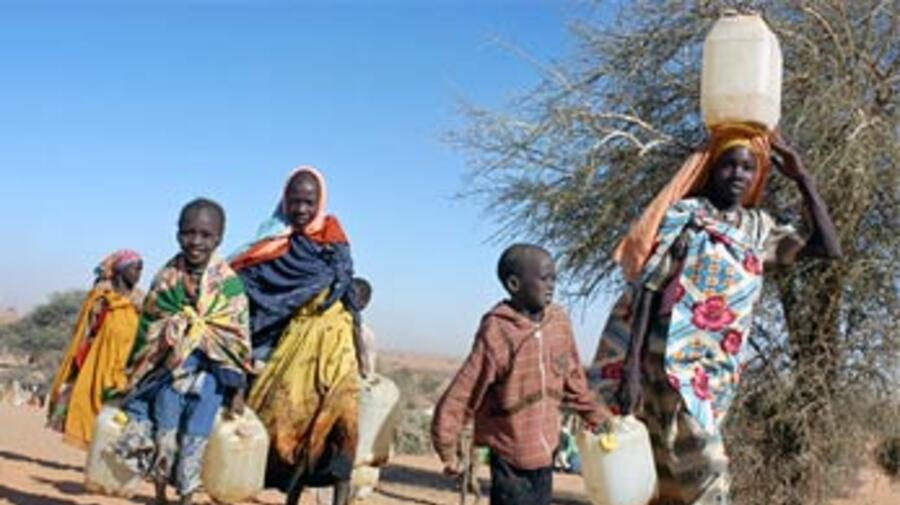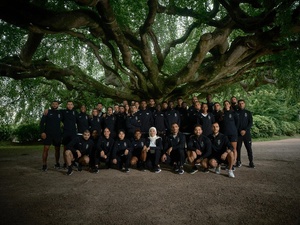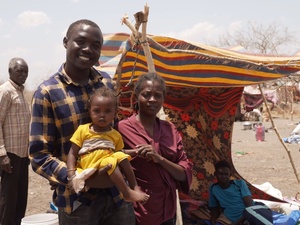UNHCR brings relief to Sudanese refugees despite heavy rains
UNHCR brings relief to Sudanese refugees despite heavy rains

Sudanese refugees in Chad carry water from newly set up taps at Touloum.
ABECHE, Chad, Aug. 13 (UNHCR) - The UN refugee agency is moving under heavy rains to ease the plight of Sudanese refugees in Chad and is laying the groundwork to help the displaced in Sudan's troubled Darfur region.
Jean-Marie Fakhouri, UNHCR's director of operations for the Sudan situation and Chad emergency, was in the Chad capital of N'Djamena today for discussions with the government and other agencies on aid to an estimated 180,000 Sudanese refugees in the region.
Fakhouri is also beefing up UNHCR's presence in Darfur to help displaced people there. The first members of a 10-person emergency team are being deployed next week to join six international staff in El Geneina and Nyala. More than a million Darfurians have been displaced since fighting broke out in the western region of Sudan early last year.
In eastern Chad, some 144,000 Sudanese refugees are now integrated into nine UNHCR camps away from the Chad-Sudan border. Another 21,000 are in sites away from the border and 22,000 remain along the border.
Heavy seasonal rains in eastern Chad this week brought transport on the Abéché-Adré road to a halt for two days, but the impact on deliveries of relief supplies to Bredjing and Farchana refugee camps has been minimal.
On Monday, before the road became impassable, eight trucks brought some 1,600 badly needed tents to Bredjing camp. On Wednesday, a tanker was able to join two tankers already on site to ferry water from the wells to the bladders for distribution.
UNHCR has been able to dramatically increase delivery of water to refugees in Bredjing from 1.7 litres to 12 litres per person per day. The number of bladders and faucets has also been increased in a bid to prevent the outbreak of cholera and other illnesses.
Meanwhile, work is continuing at a fast pace at Treguine and Mader camps, which are expected to open in about three weeks. The two sites were chosen after satellite studies indicated potential water sources in the area.
Deep wells are currently being dug in Treguine, which will shelter refugees currently at the border and about 10,000 from the overcrowded Bredjing camp. Mader will receive about 10,000 refugees from the spontaneous camp at AmNabak, which is badly lacking in water resources. UNHCR is conducting a new registration at AmNabak to determine the number of refugees in the area. To date, 8,000 refugees have been registered.









